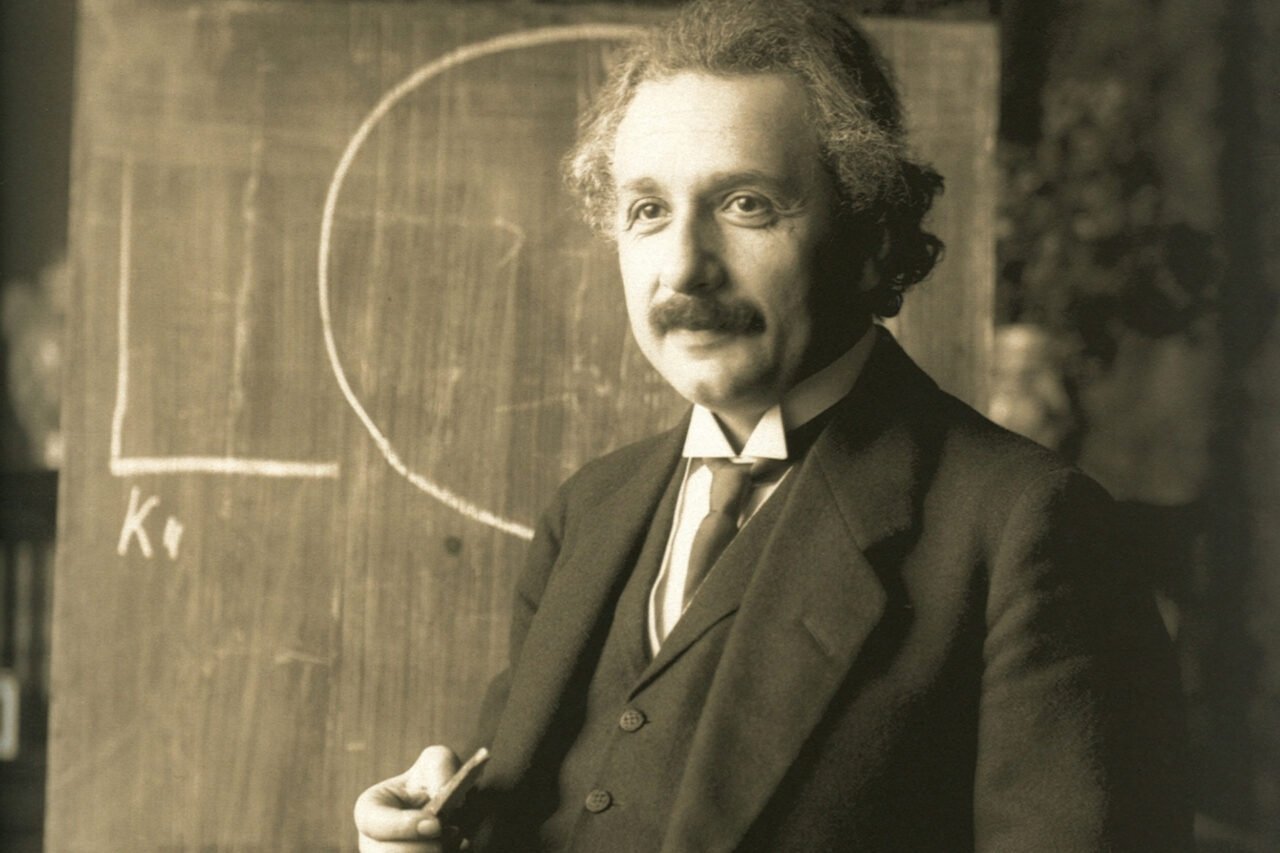Science
Einstein’s Missteps: 6 Predictions that Shaped Physics

Albert Einstein, a towering figure in the world of physics, made groundbreaking contributions that reshaped our understanding of spacetime. Despite his monumental achievements, he also made several predictions that later proved incorrect or incomplete. These instances not only highlight his human side but also underscore his profound impact on the evolution of physics.
Gravitational Waves: A Misjudged Prediction
In his 1916 publication on the general theory of relativity, Einstein predicted the existence of gravitational waves—ripples in spacetime created by massive celestial events. This prediction was confirmed in 2015 by the LIGO Collaboration, but in a twist, Einstein himself doubted his findings by 1936. After revisiting his calculations with Nathan Rosen, he concluded that gravitational waves were too weak to detect, stating in a letter to physicist Max Born, “I arrived at the interesting result that gravitational waves do not exist.” It was a notable reversal, as he later accepted that gravitational waves are indeed real and detectable.
Quantum Entanglement: Doubts and Discoveries
Einstein’s relationship with quantum mechanics was complex. While he contributed significantly to its foundation, he expressed skepticism about its completeness. In a 1935 paper co-authored with Rosen and Boris Podolsky, he famously questioned the phenomenon of quantum entanglement, where two particles become interconnected in ways that defy classical physics. He argued that unless we could explain this connection with measurable variables, we must be missing something fundamental. Subsequent research not only validated entanglement but also raised new questions about its nature, proving that Einstein’s skepticism stimulated valuable discourse.
A Unified Theory of Forces: An Unfinished Journey
For the last three decades of his life, Einstein sought a unified theory that could encompass all natural forces, specifically gravity and electromagnetism, without relying on quantum mechanics. He humorously referred to his struggle as resembling an “ostrich who forever buries its head in the relativistic sand.” Despite his tireless efforts, Einstein’s quest did not yield a successful theory, but it set the foundation for future physicists to pursue unification, now considered the “holy grail” of modern physics, as noted by the American Physical Society.
A Static Universe: Misguided Beliefs
Einstein initially believed in a static universe and introduced a “cosmological constant” to his equations, which acted as a counterbalance to gravitational attraction. This belief was in stark contrast to the modern understanding that the universe is expanding. Ironically, Einstein later dismissed the constant as an unnecessary addition to his theories, only for the concept to be revived in the 1990s under the guise of dark energy, highlighting the evolution of cosmological theories.
Black Holes: A Rejection of Possibilities
The concept of black holes was another area where Einstein faltered. Despite his own equations suggesting their existence, he categorically rejected black holes in 1939, deeming them incompatible with proper physics. He viewed the singularities at the center of black holes as a “misfortune for theory,” as they disrupted the orderly mathematical structures he valued. Today, empirical evidence from advancements like the Event Horizon Telescope has validated black holes, prompting speculation on how Einstein might have reacted to these findings.
“God Does Not Play Dice”: A Quest for Determinism
Einstein’s famous disdain for randomness in quantum mechanics is encapsulated in his assertion that “God does not play dice.” His pursuit of a deterministic framework led him to regard quantum mechanics as incomplete. While he successfully established general relativity, which has withstood rigorous testing for over a century, he believed there was a deeper, underlying reality yet to be discovered. This quest for clarity and certainty continues to inspire physicists today.
In examining these instances where Einstein missed the mark, it becomes evident that his challenges and critiques fostered essential debates within the scientific community. His relentless pursuit of knowledge and understanding has left an enduring legacy, shaping the trajectory of physics in profound ways. As historian and philosopher of science John D. Norton aptly notes, predicting Einstein’s next steps is a formidable challenge, underscoring the complexity and depth of his intellectual journey.
-

 Business1 week ago
Business1 week agoIconic Sand Dollar Social Club Listed for $3 Million in Folly Beach
-

 Politics1 week ago
Politics1 week agoAfghan Refugee Detained by ICE After Asylum Hearing in New York
-

 Health1 week ago
Health1 week agoPeptilogics Secures $78 Million to Combat Prosthetic Joint Infections
-

 Science1 week ago
Science1 week agoResearchers Achieve Fastest Genome Sequencing in Under Four Hours
-

 Lifestyle1 week ago
Lifestyle1 week agoJump for Good: San Clemente Pier Fundraiser Allows Legal Leaps
-

 Health1 week ago
Health1 week agoResearcher Uncovers Zika Virus Pathway to Placenta Using Nanotubes
-

 World1 week ago
World1 week agoUS Passport Ranks Drop Out of Top 10 for First Time Ever
-

 World1 week ago
World1 week agoRegional Pilots’ Salaries Surge to Six Figures in 2025
-

 Entertainment1 week ago
Entertainment1 week agoJennifer Lopez Addresses A-Rod Split in Candid Interview
-

 Science1 week ago
Science1 week agoMars Observed: Detailed Imaging Reveals Dust Avalanche Dynamics
-

 Top Stories6 days ago
Top Stories6 days agoChicago Symphony Orchestra Dazzles with Berlioz Under Mäkelä
-

 Business1 week ago
Business1 week agoMcEwen Inc. Secures Tartan Lake Gold Mine Through Acquisition









